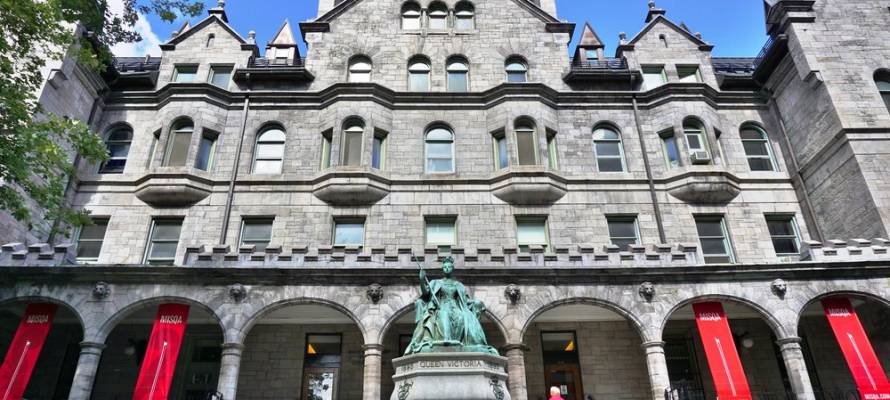McGill University’s student government on Monday night passed a resolution endorsing the Boycott, Divestment and Sanctions (BDS) movement against Israel, by a large margin.
Anti-Israel sentiment on college campuses is growing and Canada’s McGill University is no exception. The student government voted overwhelmingly to boycott Israel.
The final tally in the secret ballot was 512 for, 357 opposed and 14 abstentions.
The group behind the resolution, the McGill BDS Action Network, worked during the week before the vote to rally support for it, sponsoring a series of events on campus, including lectures, panel discussions, the screening of Palestinian films and a concert and open mic session.
Laura Khoury, a member of the group, told The McGill Daily that the events were organized “to engage [students] in a discussion about the Palestinian cause and to further discuss the call from Palestinian civil society to carry out boycotts, divestments, and sanctions against Israel until it complies with international law.”
Her statement was included in one of many articles on the issue in campus publications. One individual, writing under a pseudonym due to “concerns of personal safety,” defended the BDS movement in a long piece for McGill’s student-run news magazine The Bull & Bear.
The anti-BDS side also tried to have an influence prior to the debate and vote. One group established a Facebook event called “Vote No to BDS,” announcing:
We, the students of McGill University, ardently oppose the co-opting of [the student government], the McGill student body, and the daily lives of all McGill students by a single narrative, whose proponents have failed to impose it upon the university twice in the last 18 months.
Another group, #EnoughisEnough, told The Algemeiner last week that it aims to “create reforms on campus to prevent the student government from taking stances on contentious political issues that only divide the student body.”
Aliza Saskin, a student organizer of the group, expressed dismay at the other side’s tactics. “It is shocking that supporters of the McGill BDS Action Network have no shame in exploiting democracy,” she said. “By repeatedly bringing these motions forward, they refuse to acknowledge the democratic vote from past general assemblies and only detract the student union from dealing with issues pertinent to campus life.”
The McGill International Review, another student publication, posted a video interview on Facebook featuring a second-year law student named Simon, who laid out the case against the BDS movement. The young man also criticized the activists pushing the resolution.
“The problem comes when a small group of closed-minded students attempts to impose one view of a complex regional conflict on the entire student body,” he said. “There are so many opportunities for dialogue, so many opportunities for cooperation on the McGill campus. And yet it doesn’t happen. What we get is maybe eight months of silence from pro-Palestinian groups, and then a [resolution] is thrown at us on a moment’s notice. That’s not productive. That’s not cooperative. That isn’t the proper way to address the situation.”
After the vote, The Algemeiner reached out for a comment from McGill’s Hillel organization, but a spokesperson there responded that the students were “not in a very talkative mood” following the outcome.
Similar BDS resolutions at McGill failed in 2009, 2014 and as recently as 2015.
By: The Algemeiner










